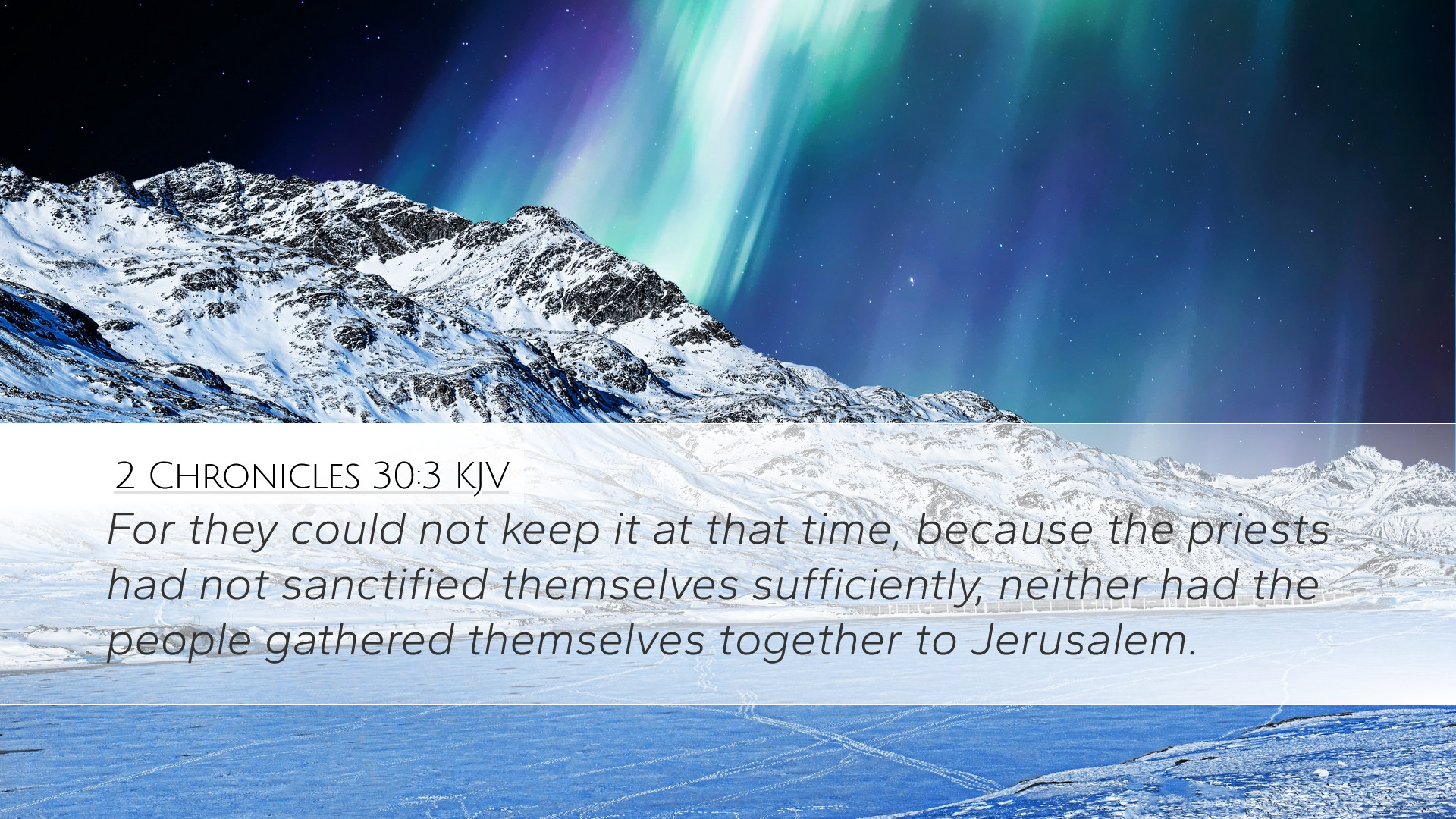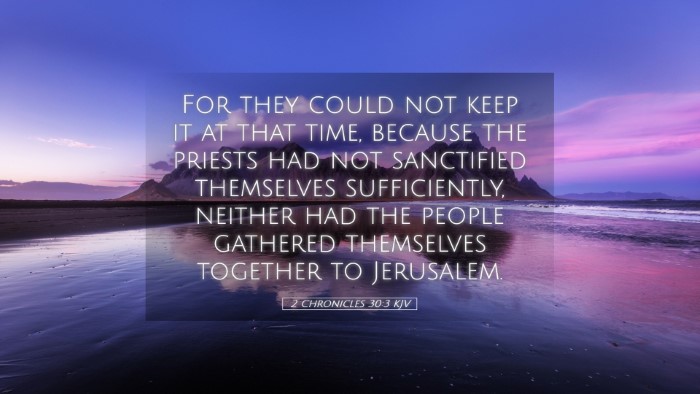Commentary on 2 Chronicles 30:3
Scripture Passage: 2 Chronicles 30:3 - "For they could not keep it at that time, because the priests had not sanctified themselves sufficiently, neither had the people gathered themselves together to Jerusalem."
Overview
This passage from 2 Chronicles recounts a significant moment in the history of Israel, specifically relating to the celebration of the Passover under King Hezekiah. The verse brings out profound themes of preparation, communal worship, and the importance of sanctification among God's people. It highlights the challenges encountered by the Israelites in their attempts to observe the feast correctly.
Historical Context
The background of 2 Chronicles is crucial for understanding this verse. King Hezekiah reigned over Judah during a time of spiritual decline, where the worship of Yahweh had diminished. The restoration of proper worship was a central aim of Hezekiah's reforms. The observance of Passover serves as a pivotal event in revitalizing the covenant relationship between God and His people.
The Challenge of Worship
This verse points to a temporal aspect of worship—specifically the inability to celebrate the Passover in the prescribed manner due to lack of preparation among the priests and the people. Matthew Henry notes that a heartfelt approach to worship is essential, and when external conditions disrupt this (like inadequate sanctification), it reflects a deeper spiritual issue.
Theological Insights
Sanctification of the Priests
The reference to priests who had not sanctified themselves sufficiently emphasizes the seriousness of approaching God. According to Albert Barnes, the priesthood was to be a model of holiness, leading the people in their relationship with God. This inadequacy foreshadows the importance of spiritual readiness in ministry and worship.
The Gathering of the People
Equally important is the failure of the people to come together in Jerusalem. Adam Clarke points out that the unity of the people is vital for collective worship. Their absence indicates not just physical distance but also a spiritual and communal distance from God's covenant. In a modern context, this raises questions about the church’s engagement and readiness to corporately worship.
Application for Today
Pastors, students, theologians, and scholars can draw several critical applications from this passage:
- The Importance of Preparation: Just as the priests were called to sanctify themselves, so should congregations prepare their hearts and minds for worship.
- Corporate Worship: The value of gathering as a community for worship reflects God's design for His people. Disunity or absence can hinder the worship experience.
- Spiritual Readiness: The concept of being spiritually prepared resonates today, reminding individuals that personal holiness significantly affects collective worship.
Conclusion
2 Chronicles 30:3 serves as a reflective point for understanding the dynamics of worship in a community deeply rooted in the faith of the Covenant. By examining both the historical context and the theological implications of this verse, readers can grasp the necessity of being prepared for worship and the power of collective faith. This commentary endeavors to incite a renewed ardor for not only individual holiness but also the pursuit of communal sanctity as integral to worshiping Yahweh.


